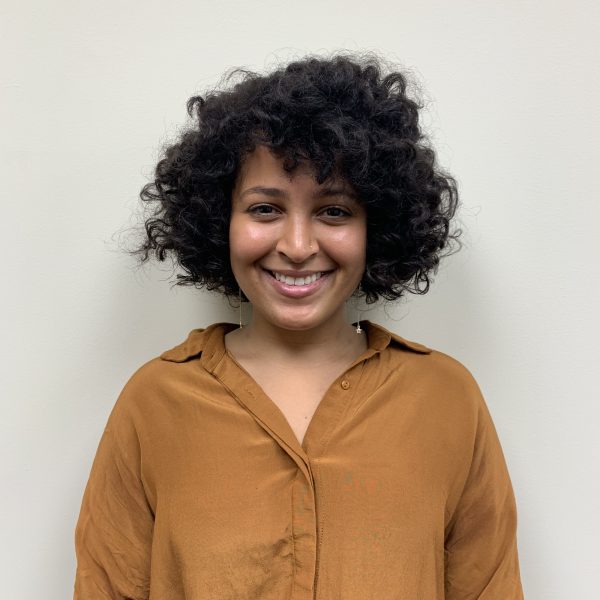By Cherisse Smith
“When we revolt it’s not for a particular culture. We revolt simply because, for many reasons, we can no longer breathe.”
― Frantz Fanon
At some point in our lives, we all experience loss; we all experience grief. Developed by psychiatrist Elisabeth Kübler-Ross, the five stages of grief model is easily the most recognized one to understand the grieving process. The expression and effects of grief are erratic and cyclical, but the common sequence is as follows: denial, anger, depression, bargaining, and acceptance. While the grieving process relies on the symbiotic relationship between each stage, anger is arguably the most vital; anger elicits change.
As a person of color, I was deeply affected by the deaths of George Floyd, Breonna Taylor, Ahmaud Arbery, Tony McDade, Riah Milton, and countless others. Each one made me think of my father, my brother, my sister, myself—how it could have been any of us. Each one was another in a series of glaring reminders of the senseless violence inflicted on black bodies in America. I was in disbelief. I was pained. I was angry. I was grieving.
But I wasn’t alone in my grief. All across the United States, all across the world, those of us who believe in humanity, those of us who value life and the ability of everyone to have a tomorrow, grieved. We collectively mourned the untimely end of these individuals’ lives. We felt the loss. We felt the pain. And we were angry.
Anger, like a river, has direction. And our shared anger went in many directions: protests, civil unrest black squares on social media, donations to bail out projects, and a recommitment to education and discourse.
Within my Sheva Center community here at JCC Association of North America, we channeled our outrage into organizing a program that originally focused on engaging our youngest learners in conversations about race. Encouraged by the success of our initial sessions, we broadened our audience to include all JCC professionals and initiated an internal working group: Joy Brand-Richardson, vice president and director of training and professional development; Sue Gelsey, chief program officer; Isabel Mares, program manager, arts and culture; Kathy Pomer, educational director, Sheva Center; and me, Cherisse Smith, program associate, Sheva Center.
The final stage of the grieving process is acceptance. But how does one accept the unacceptable? The circumstances before us are longstanding, steeped in tragedy, and the global outcry demonstrates a need for change. What we need to accept is that it is time to take action, that it is time to effectuate change.
To create environments founded on respect, support, and belonging, we must first establish and augment the pathways to equity and social justice. This initiative strives to build a unified and ongoing commitment to anti-racism education, advocacy, and change via monthly online sessions led by trusted colleagues and experts in the field as well a resource library for local use and education.
To date, we have hosted three virtual sessions:
- Reading Race: Resources for Teaching and Talking About Race With Children, presented by Sarah Wilensky, director of organizational partnerships at PJ Library: A conversation about how to curate a diverse bookshelf and launch proactive discussions with children to destigmatize difference and celebrate racial diversity
- Keeping Conscientious: Acknowledging, Owning and Interrupting Cultural Racism in Our Children’s Environments, presented by Bryan Susman, program associate at Facing History and Ourselves: A dialogue about what children learn from their environment, being conscientious of what children are exposed to, and meaningfully engaging with kids on issues of racial differences and inequality
- ReMembering Origin Stories: Reconnecting Our Shared and Diverse Histories for the Future, presented by Sara Wolcott, founder of Sequoia Samanvaya: A discussion exploring stories of our past, their inaccuracies, and gaps; an investigation of how incomplete history may affect our present concepts of identity
Our ultimate goal is to design a framework that will guide JCC professionals in building a true community of belonging for our diverse population. It is our hope that JCCs will use what they’ve learned from attending various sessions, coupled with these inclusion guidelines, to educate themselves and to create spaces in which people of color feel safe, empowered, and welcome. We will continue the work with a field-facing session to define the purpose of our work, to generate a shared language to use to communicate our values, and highlight some of the educational, action-oriented programming from a few JCCs across the continent.
Grief is cyclical. We will likely have to undergo new periods of denial, depression, bargaining, and anger as we work to resolve racism and new injustices. And along the way, tools of acceptance can nurture our values and welcome our responsibility to build a community of inclusion. Here at JCC Association, we are amplifying the work occurring throughout the field and doing our part to contribute to that community by motivating, cultivating, and maintaining earnest anti-racist dialogue. We invite you to join us in these conversations and promote the principles of inclusion and the celebration of diversity.
To join the conversation, contact Cherisse Smith at [email protected].
 Cherisse Smith is the program associate for JCC Association’s Sheva Center for Innovation in Early Childhood Jewish Education and Engagement
Cherisse Smith is the program associate for JCC Association’s Sheva Center for Innovation in Early Childhood Jewish Education and Engagement
Looking for other ways to stay connected to the JCC Movement? Sign up below for email updates, including our new quarterly newsletter, and visit us on Facebook, Instagram, and Twitter.
Wow Cherisse! Honored to work with you and stand beside you. Thank you so much for sharing your profound words and perspective. Proud to have equity, diversity and inclusion in action as priorities at JCC Association.